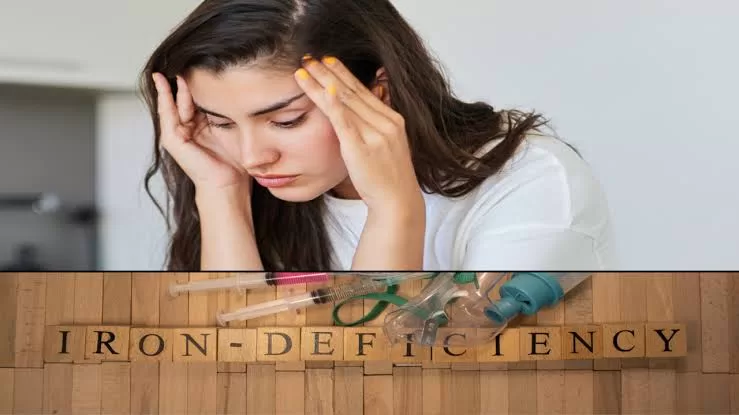Iron deficiency is a condition in which your body doesn’t have enough iron. Iron is an essential mineral that your body needs to make hemoglobin, a protein in red blood cells that carries oxygen to your tissues. When you don’t have enough iron, your body can’t make enough hemoglobin, which can lead to anemia.
Anemia is a condition in which your blood doesn’t have enough healthy red blood cells. Healthy red blood cells are red because they contain hemoglobin, which gives them their color. Hemoglobin also helps red blood cells carry oxygen to your tissues. When you have anemia, your tissues don’t get enough oxygen, which can cause a variety of symptoms.

The most common symptom of iron deficiency is fatigue. You may also experience pale skin, shortness of breath, dizziness, headaches, and cold hands and feet. In some cases, you may also crave non-food items, such as ice or dirt.
If you experience any of these symptoms, it’s important to see a doctor to get checked for iron deficiency. Iron deficiency is a treatable condition, and early diagnosis and treatment can help prevent complications.
Here are five warning signs of iron deficiency that you must not ignore:
- Fatigue: Fatigue is one of the most common symptoms of iron deficiency. You may feel tired all the time, even after a full night’s sleep.
- Pale skin: Iron deficiency can cause your skin to appear pale, especially your lips, gums, and inside of your eyelids.
- Shortness of breath: If you have iron deficiency, you may become short of breath after even mild exertion.
- Dizziness: Iron deficiency can cause dizziness, lightheadedness, and headaches.
- Cold hands and feet: Iron deficiency can cause your hands and feet to feel cold, even in warm weather.
If you experience any of these symptoms, it’s important to see a doctor to get checked for iron deficiency. Iron deficiency is a treatable condition, and early diagnosis and treatment can help prevent complications.
Here are some tips to help prevent iron deficiency:
- Eat a balanced diet that includes plenty of iron-rich foods, such as meat, poultry, fish, beans, lentils, and leafy green vegetables.
- If you are vegetarian or vegan, make sure to include iron-rich foods in your diet, such as fortified cereals, tofu, and tempeh.
- If you are pregnant or breastfeeding, talk to your doctor about taking an iron supplement.
- If you have heavy menstrual periods, talk to your doctor about taking an iron supplement.
By following these tips, you can help keep your iron levels healthy and prevent iron deficiency.
Allergic Awareness: 5 Common Food Allergens You Should Know About

